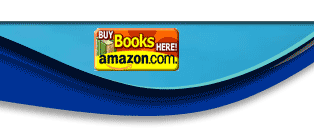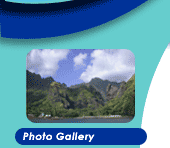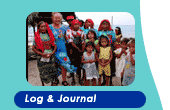











March 26, 2007
Anchored in Port Massawa, Eritrea
15º36.76 N, 39º 27.74E
Forty-eight Hours in Massawa
By Lois Joy
Go
to photogallery
Saturday:
Pacific
Bliss drones on through a becalmed Red Sea, finally reaching the port city
of Massawa in this small country of five million souls called Eritrea. We
know that we are arriving too late to check in, and that Sunday is the official
day off, for this is a Christian nation set among Muslim countries. A few
cruisers elect to wait out the week-end at a nearby anchorage, arriving on
Monday. But we are content to fly our yellow quarantine flag, relax and stay
on board per regulations, secure in the knowledge that we are already in port.
Hooray!
On the Net this Saturday morning, we hear that the customs office will open
in the afternoon to clear the arriving yachts. "Port Control, Port Control,
permission to proceed to the anchorage," I call on VHF Channel 16 as
we approach the harbor.
"Tie up to
the Quay, next to the white luxury ship," comes the answer. "We
will open at 1600." Chris and I rush to get the fenders out of the sail
locker to tie up along the tire-protected blocks. It is 1400. Two hours to
wait in the blazing sun. But this means that we can spend the week-end seeing
Massawa. We wait. The harbor master's office never does re-open. Chris and
Gunter walk around the port area and manage to rouse Immigration, sleeping
behind closed doors. Great! We have shore passes good for 48 hours!
After
crewing in the hot sun (and neglecting to don a hat) and weakened by the Aden
flu that has attacked 1/4 to 1/3 of the fleet, I elect to stay on board after
all. Gunter, dead tired after our passage, stays with me. Chris becomes our
delegate to check out the night life. This is the first port since Galle,
Sri Lanka where the girls are uncovered. They have the African dark skin,
petite frames, with pretty faces and high cheekbones. Their hair is fashioned
in an amazing array of braided styles. The Eritreans brew their own beer here,
which is actually quite good, but not as easy to obtain as we'd been told.
However, Chris manages through Mike, the yachties' helper here, to track some
down.
Sunday:
The
situation in Eritrea is grim, Chris reports. The local friends he made on
Saturday night were not positive about the government, even though Eritreans
are proud of their hard-won independence. The government has become quite
autocratic and wants to remain in control at all cost. As in Yemen, officials
are not doing enough to bolster the economy of the country. When a person
does obtain an education, he (or she) is not assured that he can work in the
occupation for which he has been trained. The government "assigns"
the jobs and seems not to care whether the person wants to do that particular
job or is trained for it. They seem afraid to "grow" educated, powerful
people. The "assigned" military service is from three months to
three years, compulsory for both men and women, and very tough. Although the
people seem friendly enough, there were many signs that they have little hope
of an improving future.
The
poverty is apparent here wherever one goes. A step down from Yemen. Which
was a big step down from Salalah, Oman, our first Middle Eastern port. How
much worse can it get? I am not looking forward to Sudan.
Everywhere
one sees the debilitating effects of decades of war. As we dinghy from the
anchorage to the quay, we pass the bombed-out remains of one of Halie Selassie's
old mansions overlooking the harbor. After going through the port control
gate, we pass more bombed-out buildings. One of them has a unique architecture
reminiscent of some sort of splendor gone by. "That was a commercial
bank building," we are told. "The Ethiopians bombed it as a good-by
gesture, after the peace treaty was signed." There is no love lost between
the Ethiopians and Eritreans (see previous story: The Countries of the Red
Sea). We see white vans with the U.N. insignia. Many peace corp officers are
stationed here. I am eager to do an internet search to find out more. Are
any western countries aiding this struggling poor country? They should be.
Chris,
Gunter and I meet at 7:30 AM with a group of yachties at Mike's teahouse,
where he has arranged for a van to take us to church. We have no idea of what
kind of a church we were being taken to; it turns out to be Orthodox Catholic.
We remove our shoes at the entrance, packed with families, and sit on the
array of rugs spread out in the center of the church. A group of elders march
to the front wearing white crown-style caps and white prayer robes, carrying
ornate silver crucifixes. One framed print of Jesus--along with three framed
prints of Mary and Baby Jesus--take up the wall space at the front. There
is an altar surrounded by plastic flowers. The sides of the church are lined
with stain glass windows--for looks, none of them open. The women in the church
are wearing white gauze scarves over their heads and shoulders. I am wearing
a light aqua headscarf; the other yachties with me have hats or caps. As we
listen to a language we cannot understand, women bring us plastic chairs to
sit in. Either we were too late for the music, or there wasn't any. There
are eight fans hanging from the ceiling, but they are not moving. No electricity?
Who knows. It is stifling hot. A lady notices my white face and sweating brow,
and brings me a little pink plastic fan to wave. That saves me. At the end
of the one hour service, my two friends and I talk with two nicely dressed
ladies. One invites us to tea, that is, until they find out that we are a
group of eight. "Too many for my house," she backs out delicately.
We move toward the entrance, where groups of families--mostly women and children--pack
the church yard and steps. Now we understand why they sit outside during the
service, to catch a breath of air.
The
van is not going back, but to the market. It is only 9:30 AM, and I'm not
sure I can make it. I deplete my water bottle to prevent yet another dehydration
headache, hoping to buy more. The stalls are the poorest I've seen in all
of our circumnavigation. We do purchase a bunch of bananas, and I find a cooler
mesh headscarf. The supermarket in Massawa mentioned in the Red Sea Pilot
has long been closed. One cannot even find a can of coke or other soft drink
here, now that's poverty! I wait in the van, parked in the shade, for the
others. Since the flu, I cannot take the blistering sun.
Back
at Mike's, we sit and socialize, go for a beer next door to quench our thirst,
(it's either beer or water here), then walk to The Beaches for a nice Sunday
lunch. A video of the BeeGees is playing on the TV set. I have red snapper,
nicely spiced, and Gunter has a so-so hamburger that arrives without the fries
he ordered. Meals are expensive, considering the economy, about $5 per person.
But beer is cheap, about 12 nafka, 80 cents (vs.$4 in Aden). I order every
juice on the menu, in succession, with the waitress coming back each time,
"We do not have…" until I hit on the one they can actually
make (fresh orange juice). A taxi van picks us up walking part-way back to
the quay, saving me from heat-stroke. We have to walk along the entire commercial
street to the guard-house, then back the same way we came, inside, on the
hot tarmac lining the quay. Ports are always like this, dirty, unfriendly
to cruising needs and making one feel third-class. Oh, for those Mediterranean
marinas where one walks off the gang-plank to the restaurant. I can't wait!
We
plan out a side trip to Asmara, the supposedly charming capital in the mountains
with Italian architecture, pizza restaurants, and cool dry air. We send Chris
back to Mike's in the evening to negotiate a taxi and driver for us while
we pack and rest. When he returns, the price is exorbitant-hundreds of dollars
that we would rather spend in Egypt. We know we are being taken. The pricing
doesn't make sense when the bus ride is only $2.00. But the bus ride is four
hours long with no personal stops vs. two hours long in a taxi, where we can
stop if we want to. Besides, we would need to obtain a VISA and a travel permit
on Monday. We decide to skip Asmara, and to check out within the 48-hour limit,
since we were unable get the $40 per person VISA when we checked in. Sudan,
here we come!
At
night, I wake up every hour, sweating, sheets soaked with perspiration, and
NO, it's not that; I am too old for menopause! I splash water on my naked
bod and lie down again in front of the fan. It is deadly calm, hot, and humid
all night. This anchorage is a hell-hole, and I just want to get out.
Monday:
The phrase we borrowed from MiGitana, "Nothing is ever easy," is
multiplied in spades in Eritrea. Even though we technically have until 3:00
PM, we rush to check out before the offices close at 12:00. (Nothing is open
here from 12 till 4 PM; the searing heat we experience only gets worse as
the summer comes on.) First, we need to pick up the laundry we dropped off
upon arrival. Mike goes back to his home to fetch it while we wait at his
tea house, having breakfast. He comes back with one of our bags and one belonging
to Legend II; Kathy and Verna have just left on the bus to Asmara. But wait!
It gets worse. Their laundry is mixed up with ours in one of the bags, piece
by piece. A pile of washcloths, mixed. A pile of towels, mixed. A pile of
underclothes… well you get the point. We sort them all out on the tables
at the back of the restaurant, while Mike brings the final bag. Chris and
I go to the internet, but just as we sit down at a terminal, all the servers
go down. We return to Mike's. We're concerned about the time drifting past,
even on Eritrea time, 1200 was coming close, and we hadn't checked out. Mike
has managed to buy a supply of beer for Chris, bottles, which we stow in our
hefty "provisioning" bag. I stay to guard the beer, while Chris
and Gunter go by dinghy to bring Pacific Bliss to the dock. Then we lug the
laundry and the beer back past the guard house, along the quay, and heft it
all onto Bliss. Next, we check in and out, so that our passports are stamped
correctly. "Are you sure you don't want VISAs?" they keep asking.
"No, that's
past. We want to leave, NOW," says Gunter.
We leave
the office. We never did check in with the Harbor Master, who wanted us there
at 1600 Saturday. By 1230, we are "outta Dodge and " blowing this
popstand," new terms for Chris from the American Midwest.
|
|
 |
 |
 |
|
|||||||||
|
|
|
||||||||||||
|
|
|
||||||||||||
|
|
|
||||||||||||
|
|
|
|
|
|
|
|
|
|
|||||
|
|
|
||||||||||||
|
|
|
||||||||||||
 |
 |
|
|||||||||||
|
|
|
||||||||||||
|
|
|
||||||||||||
|
|
|
||||||||||||
 |
|
||||||||||||
|
|
|
||||||||||||
|
|
 |
|
|||||||||||
 |
|
||||||||||||
 |
|
||||||||||||
 |
|
||||||||||||
 |
|
||||||||||||
 |
|
||||||||||||
|
|
|
|
|
|
|
|
|
|
|
|
|
|
|